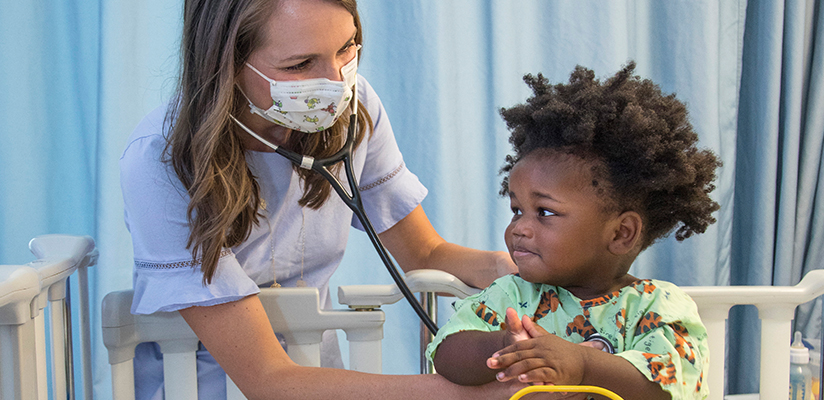Creating Value
To determine an overview of the landscape of fellowship offices in the U.S., Pediatric Fellowship Office Director and Le Bonheur Cardiologist Michael Rebolledo, MD, MBA, MPH, and Pediatric Fellowship Office Administrative Coordinator Jayme McGrail published the article “Creating Value: Many Roles of a Centralized Pediatric Fellowship Office” in Academic Pediatrics. The article intended to determine how frequently a centralized administrative model is used for fellowship programs and to better understand some of the barriers to implementation at other institutions.

“Not much has been published on fellowship office administrative models, and we wanted to build on the limited literature available,” said Rebolledo. “Through this paper, we’re also able to share the lessons we learned during the development of our own centralized fellowship office.
McGrail and Rebolledo conducted a survey of designated institutional officials (DIOs) from children’s hospitals that ranked among the “Best Children’s Hospitals” in U.S. News & World Report for 2019-20. The six-question survey asked which fellowship programs were offered at their institution and if they used a centralized pediatric fellowship office model. The paper also shared Le Bonheur and UTHSC’s framework for a centralized office and the benefits of this model.
Outcomes included:
• 54% used a centralized fellowship office; 40% did not use a
centralized fellowship office; 6% selected other
• Among those without a centralized fellowship office, 78% had
considered developing a centralized fellowship office, while
22% had not
• Among those with a centralized fellowship office, the
governance structure was most commonly the Department
of Pediatrics (66.7%) and Graduate Medical Education (GME)
(51.9%) followed by hospital administration (11.1%) and other
(8.4%)
• Funding source was most commonly the Department of
Pediatrics (66.7%) and hospital administration (40.7%)
followed by GME (33.3%) and other (11.1%)
• The greatest barriers to this model were satisfaction with
the current structure and difficulty achieving buy-in from
stakeholders.
“Among our survey sample, a centralized pediatric fellowship administrative model is not only feasible but commonly utilized,” said Rebolledo. “A centralized office can reduce overlap and streamline shared processes eliminating inefficiencies.”
Help us provide the best care for kids.
Le Bonheur Children's Hospital depends on the generosity of friends like you to help us serve 250,000 children each year, regardless of their family’s ability to pay. Every gift helps us improve the lives of children.
Donate Now








